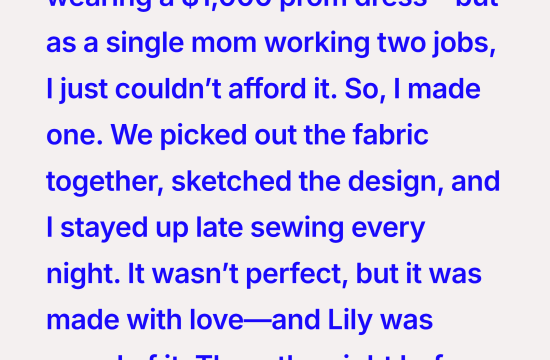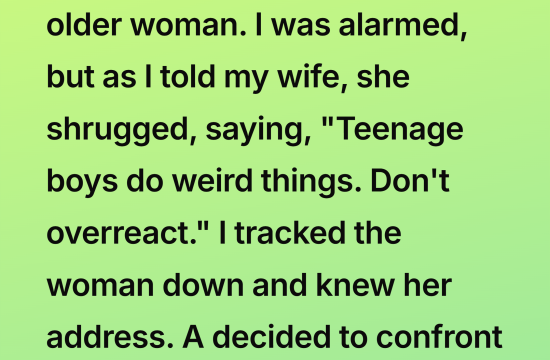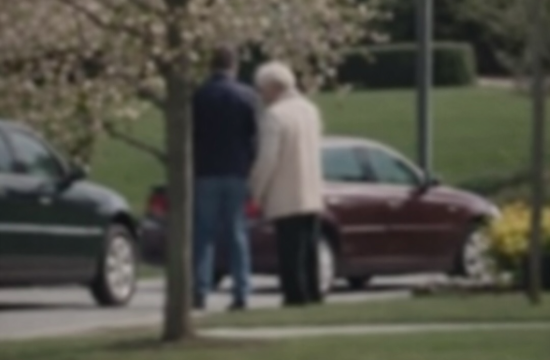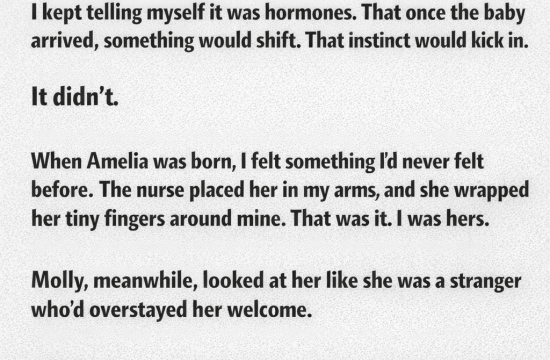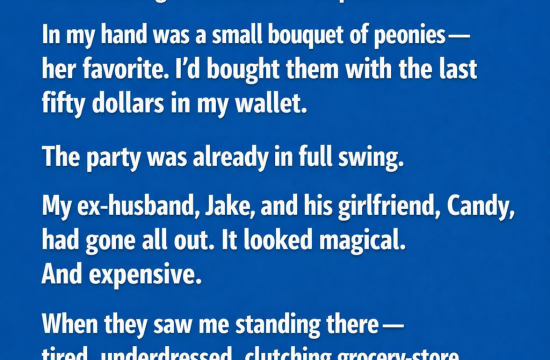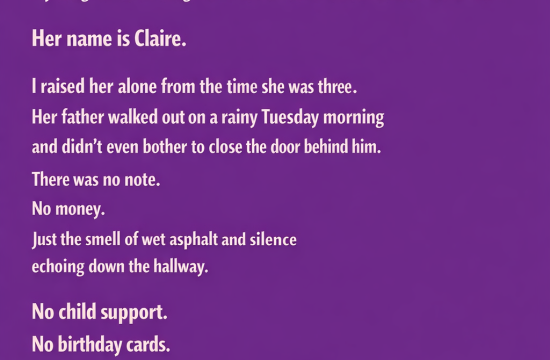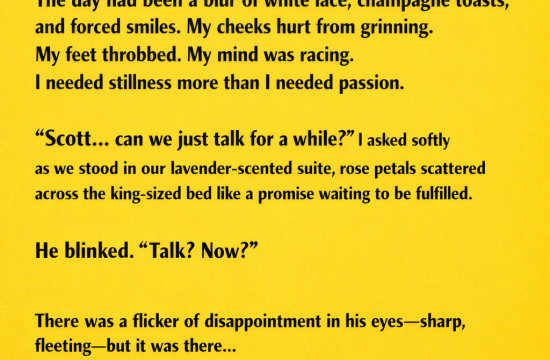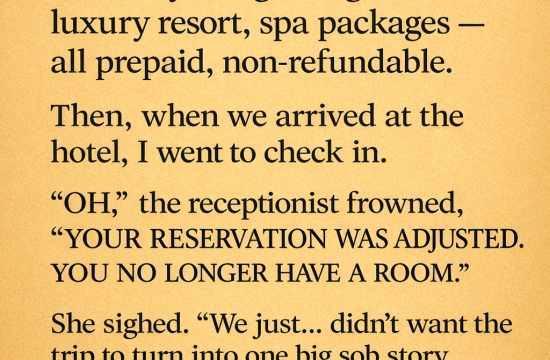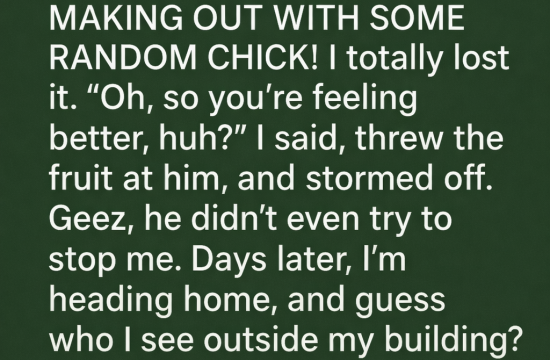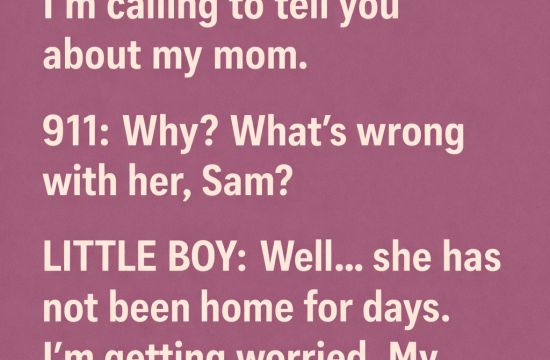I was 19 when my older brother threw me out of the apartment. Our mom had just passed away and left him the place in her will. Less than a month later, he told me to pack up and get out. I hit rock bottom. But karma always comes around—and five years later, the day came when I could teach him a lesson he’d never forget. He showed up at my door, desperate and broke, begging for help.
I still remember that morning like it happened yesterday. My brother, Stroud, stood in the kitchen, arms folded, eyes like polished ice. The apartment already felt hollow. Mom’s scent had vanished, and the air held the cold finality of grief. Her neatly folded blankets mocked me from the closet. I was still mourning, still trying to breathe through the weight of losing her. But Stroud had made up his mind.
He tossed a trash bag at my feet. “Time to figure life out, Cale,” he said, like he was doing me a favor.
I shoved clothes and photo albums into two duffels and walked out without a word. The hallway stretched like a tunnel of shame. Each stair down echoed what I refused to say: I’m unwanted. I’m alone.
For weeks, I couch-surfed until I ran out of couches. Then came the cold stone bench at Northwell Green, my backpack as a pillow. I’d wake up sore, paranoid, exhausted. Nights were the hardest—the silence brought Mom’s voice back. In my dreams, she brushed hair from my face and whispered, “Cale, you’re stronger than you know.” I’d wake up wondering whether she’d be furious at Stroud—or disappointed in me for failing so quickly.
But I couldn’t stay broken forever.
I took any job I could find—dishwasher, flyer distributor, stock boy. The first paycheck was only $97, but I felt rich. I bought a secondhand button-down shirt, wore it like armor. No one at work knew I was homeless. Shame kept my story locked behind tired smiles and quiet nods.
Then came Corbin.
He was a regular at the diner—every Wednesday, same table, black coffee, apple pie. One night, he watched me scrub the floor long after closing and simply asked, “You got a place to sleep, son?” I didn’t want pity. But desperation has a way of silencing pride. He offered me his garage apartment—a cot, a lamp, and peace. That first night, I cried like a child. It was the first time I felt human again.
Corbin ran a landscaping business and taught me everything: how to edge a lawn, lay pavers, read clients. He even helped me get a license to drive his spare truck. By 22, I was managing two crews and saving every penny. When Corbin retired, he sold me the business for a fraction of what it was worth. “I believe in you,” he said.
I renamed it Root & Stone. Within a year, we had four trucks and a full staff. I moved into a modest townhouse. On the walls were photos of Mom, Corbin, and finally, me—smiling. I wasn’t just surviving anymore. I was living. And in the back of my mind, I often wondered: What if Stroud ever shows up again?
And then… he did.
Five years after he kicked me out, he appeared at my door. Disheveled. Gaunt. His jacket stained, his voice shaky. “Cale,” he said softly.
I didn’t move. He looked smaller than I remembered, like life had been chewing him up piece by piece. He tried to hug me. I stepped back. My mind flashed to that garbage bag, to the bench at Northwell, to the nights I wanted to disappear.
He told me he’d lost the apartment to gambling debts. Lost his job. His car. His dignity. Friends stopped answering. Now, he was out of options.
He begged for help.
For a moment, I considered shutting the door. He deserves this, I thought.
But then I heard Mom’s voice again: You’re stronger than you know.
Strength wasn’t vengeance. It was mercy.
I let him in—but with conditions. He could sleep on the couch. But in 30 days, he needed a job and had to start paying rent. No handouts.
The first two weeks were rough. He left dishes everywhere. Acted entitled. But then, on day fifteen, I came home to find him sitting on the floor, clutching a photo of Mom, tears streaming down his face.
“I hated how much she loved you,” he admitted. “It made me feel invisible. Like I didn’t belong.”
He had never said those words before. And suddenly, I saw him—not as the villain who hurt me, but as a broken boy who never healed. His bitterness hadn’t started with me. It had just landed on me.
We talked. We cried. We unpacked years of silence. He apologized. And I forgave—not because he deserved it, but because I needed to let that pain go.
I gave him a job on one of my crews. He started slow, but worked hard. Showed up early. Stayed late. He earned the respect of my team—and eventually, mine. Our fights were fewer. Our understanding, deeper.
Months passed. Stroud moved into his own place. He met Sonja, a warm woman with two kids. They became his second chance. He helped with homework, fixed bikes, built bookcases. He even started joining me for holidays. For the first time since Mom’s funeral, family felt like a word that didn’t hurt.
One quiet afternoon, as we sat on my porch, he looked over and said, “Thank you… for not turning me away. I don’t know where I’d be if you had done to me what I did to you.”
I replied, “I didn’t do it for you. I did it for Mom. For who she raised me to be.”
And that was the truth.
People might say I was foolish. That I should’ve let him suffer. But life isn’t about revenge. It’s about rising above what broke you. Forgiveness isn’t weakness—it’s freedom.
Now, Stroud and I co-run Root & Stone. We’ve expanded across three counties. We even started a community program, teaching landscaping to homeless youth. It’s our way of closing the circle. Giving back the second chance we were both lucky to get.
I used to think karma was about punishment. But I’ve learned it can also be about redemption—life giving you a chance to fix what was broken.
Sometimes, healing comes not from shutting a door… but from daring to open it again.


